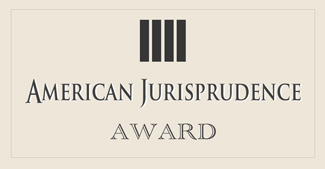
Your pre-trial hearing will provide you with an opportunity to negotiate with the prosecutor, so it’s important to arrive prepared. Read on to learn about what to expect from the pre-trial process and how a Utah criminal defense attorney can help.
When is a Pre-Trial Conference Available in Utah?
Your very first appearance before the court is called an arraignment. At the arraignment, you’ll be brought before the court (either in person or through video conference at the county jail), informed of the charges against you, and asked if you’d like to submit a plea. In general, there are only three types of plea: guilty, not guilty, and nolo contendere (no contest).
- A guilty plea will prompt the court to schedule a sentencing hearing. Because you’ve already admitted guilt, the only issue that remains is the sentence you’ll receive.
- Pleading not guilty will prompt the court to set a pre-trial conference.
A pre-trial conference will provide you with the opportunity to discuss and negotiate your case with the prosecutor. If a plea deal can’t isn’t reached or accepted, your defense attorney will prepare for trial.
What is the Purpose of a Pre-Trial Conference?
The pre-trial conference is designed to help both parties decide contested evidentiary matters and other issues that, if brought up for the first time at trial, could cause delays and waste resources.
The primary objectives of a pre-trial hearing are to:
- develop and clarify the matters in the case
- eliminate frivolous claims or defenses
- acquire admissions of fact and documents to avoid unnecessary proof
- identify witnesses and legal documents
- make schedules for the submission of pretrial briefs and motions
- make rulings on motions submitted before the conference
- set dates for further conferences
- explore the possibility of a plea bargain deal
- explore the consolidation or management of large, complex cases.
Often, the prosecutor will offer a plea bargain early in the pre-trial process. Accepting a plea deal will require you to plead guilty to a lesser charge in exchange for a shorter sentence or the dismissal of certain related charges. Although judges aren’t required to approve plea agreements, if the judge deems the agreement to be a fair resolution of charges, he or she will accept it.
At this point, you move to the sentencing phase, and the pre-trial process is over.
If the case isn’t negotiated to lesser charges, your pre-trial conferences will focus on the identification of witnesses, the scheduling of depositions to take witnesses’ statements, and the admissibility of certain evidence. You may have the opportunity to challenge certain physical evidence offered by the prosecution or be asked to defend your proposed witnesses by providing a summary of expected testimony.
After each conference, the judge or magistrate will issue an order reflecting what took place at the conference and setting any future deadlines in the case.
Do You Need a Lawyer During a Pre-Trial Conference Hearing?
The pre-trial process can create a seeming whirlwind of activity, and it can be hard to know when to consult an attorney. A criminal defense attorney should be consulted well before a pre-trial conference to enable them to analyze the evidence and prepare for court. Being convicted of a crime can carry some hefty penalties that may follow you for the rest of your life. As a result, it’s crucial to protect your rights by consulting a Utah defense attorney before your first pre-trial conference. If you’ve found yourself facing criminal charges in Utah, contact Wasatch Defense Lawyers for a free consultation to discuss your legal options.



